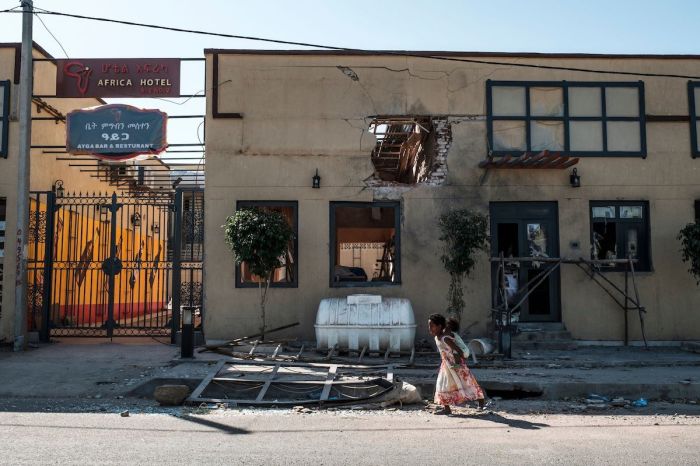US gov't sends special envoy to Ethiopia amid rising violence in Christian region of Tigray

The U.S. government has sent an envoy to Ethiopia amid escalations in the predominantly Christian region of Tigray, where Eritrean forces have escalated a conflict days after the government, led by authoritarian President Isaias Afewerki, took over a Catholic-run technical college in that country.
The Hagaz Agro-Technical School, which was being run by the LaSalle Brothers for more than two decades, was seized by the Eritrean government, the BBC reported, adding that another Catholic-owned training college, the Don Bosco Technical School in Dekemhare, is also expected to be handed over to the government this month.
In 2019, the Eritrean government took control of secondary schools and health facilities run by religious organizations across the country, claiming that a 1995 regulation limited their activities.
President Afewerki is a member of the Eritrean Orthodox Church in Asmara — belonging to the largest among the only three Christian denominations allowed to function in the country.
Afewerki, 76, the leader of the ruling People’s Front for Democracy and Justice Party, also has a reputation of being an alcoholic and a ruthless autocrat. Afewerki’s policy of restrictions is more about his fear that religion will mobilize people as a political force than religion itself.
Catholic bishops in the Horn of Africa nation have said that the church’s social services do not in any way oppose the government.
The Catholic Bishops Conference of Eritrea earlier wrote to the government, saying, “the Church's life is connected with the service of the people.”
Meanwhile, the U.S. Special Envoy for the Horn of Africa, Mike Hammer, is arriving in Ethiopia Sunday to “press for an immediate cessation of hostilities and the start of peace talks” in the Tigray region that is consumed by violence. Hammer will remain in the region until Sept. 15.
Organizations, including Amnesty International, CNN and Sky News, have previously published investigations into massacres committed against civilian populations in the Tigray region. Fighting began after the Tigray People’s Liberation Front attacked an Army base as part of an uprising in the region, which sparked military responses from Ethiopian forces joined by defense forces from neighboring Eritrea in November 2020.
“We condemn Eritrea’s re-entry into the conflict, the continuing TPLF offensive outside of Tigray and the Ethiopian government’s air strikes,” AFP quoted White House Press Secretary Karine Jean-Pierre as saying.
“There is no military solution to the conflict,” she continued. “All parties should exercise restraint and we urge de-escalation by all actors, particularly so that there can be a resumption of humanitarian relief and basic services to all parties in need.”
Last June, 56 women from Africa or of African descent wrote an open letter and launched a petition to be delivered to the U.N. Security Council, the African Union and the European Council calling for urgent action against “cruelty beyond comprehension” in Tigray.
It is estimated that 30% of all incidents against civilians involved sexual violence used “as a weapon of war, as a means to humiliate, terrorize and traumatize an entire population today and into the next generation,” according to a study quoted in a report by the U.N. Under-Secretary-General for Humanitarian Affairs and Emergency Relief Coordinator, Sir Mark Lowcock, the letter said.
“Reports continue to emerge from Tigray of wives being raped in front of their husbands; mothers raped in front of their children and vice versa; family members forced to choose between raping female relatives or death, and of women themselves being forced to choose between rape or death,” the letter stated.
“Several victims report their assailants boasted of ‘cleansing’ their bloodline, while others arrive at medical facilities having suffered additional traumatic injuries to their reproductive organs inflicted by attackers to prevent them from bearing children,” added the authors, which included human rights activists, writers, artists, parliamentarians, politicians, religious leaders, lawyers and academics from more than a dozen countries.
The perpetrators, the authors of the letter said, were identified as members of the “Ethiopian National Defense Forces, Eritrean Defense forces, Amhara Special Forces, and other irregular armed groups or aligned militia,” and nearly a quarter of the cases involved gang rape over an extended period of time.





























